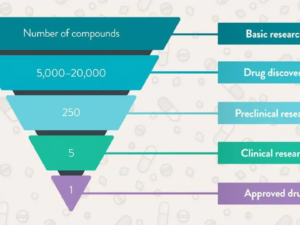Modern Technology and Mental Health: How Our Devices Affect Our Well-Being
In the 21st century, technology is ubiquitous. We use it for everything from communication to entertainment to work. But what impact does all of this technology have on our mental health?
There is a growing body of research that suggests that technology can have both positive and negative effects on our mental health. On the one hand, technology can help us to connect with others, stay informed, and learn new things. It can also be a source of entertainment and relaxation.
On the other hand, technology can also be addictive, isolating, and stressful. It can lead to problems such as sleep deprivation, social anxiety, and depression.
How Technology Can Affect Mental Health
There are a number of ways in which technology can affect our mental health. Here are a few examples:
- Addiction: Technology can be addictive, just like any other substance or activity. When we use technology excessively, it can interfere with our work, relationships, and sleep. It can also lead to feelings of anxiety and depression.
- Isolation: Technology can make us feel isolated from others. When we spend all of our time interacting with people online, we may neglect our real-world relationships. This can lead to feelings of loneliness and depression.
- Stress: Technology can be a source of stress. When we are constantly connected to work or social media, it can be difficult to relax and de-stress. This can lead to problems such as anxiety and depression.
How to Use Technology in a Healthy Way
If you are concerned about the impact of technology on your mental health, there are a few things you can do to use technology in a healthier way. Here are a few tips:
- Set limits: Set limits on your screen time. Decide how much time you want to spend on your devices each day, and stick to it.
- Take breaks: When you are using your devices, take breaks every 20-30 minutes to get up and move around. This will help to reduce stress and improve your focus.
- Be mindful: When you are using your devices, be mindful of how you are feeling. If you start to feel stressed or anxious, take a break.
- Connect with others: Don’t use technology as a substitute for real-world relationships. Make time to connect with friends and family in person.
- Get help: If you are struggling with your mental health, don’t hesitate to seek help from a professional.
The Future of Technology and Mental Health
As technology continues to evolve, it is important to be mindful of the potential impact it can have on our mental health. By using technology in a healthy way, we can minimize the risks and maximize the benefits.
In the future, technology may be used to develop new treatments for mental health disorders. For example, virtual reality (VR) is being used to treat anxiety and PTSD. VR allows people to safely experience traumatic events in a controlled environment. This can help them to process their emotions and overcome their fears.
Other technologies, such as artificial intelligence (AI), may be used to develop new diagnostic tools and personalized treatment plans. AI can be used to analyze large amounts of data to identify patterns and trends. This information can be used to develop more effective treatments for mental health disorders.
The future of technology and mental health is promising. By developing new technologies and using them in a healthy way, we can improve the lives of people with mental health disorders.









